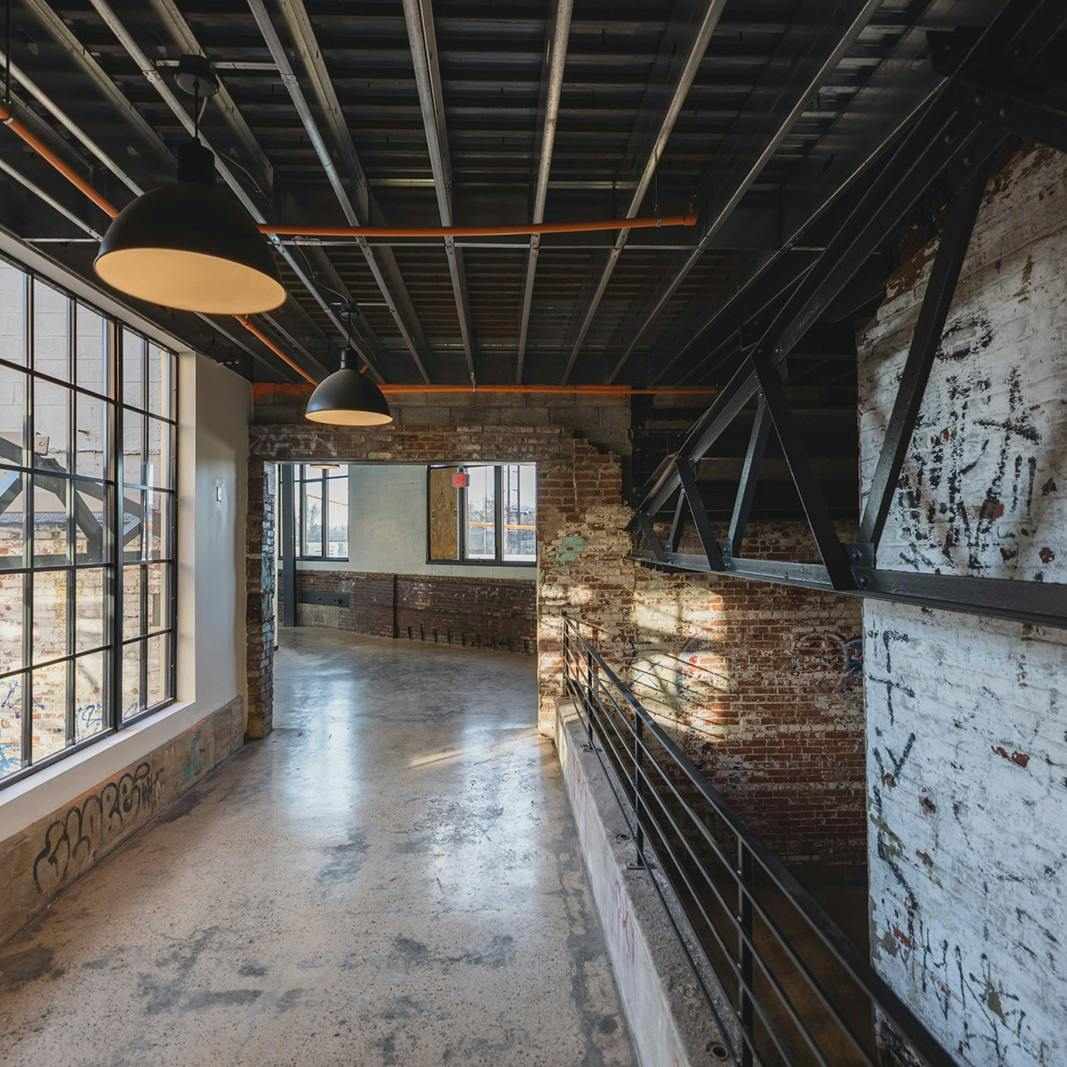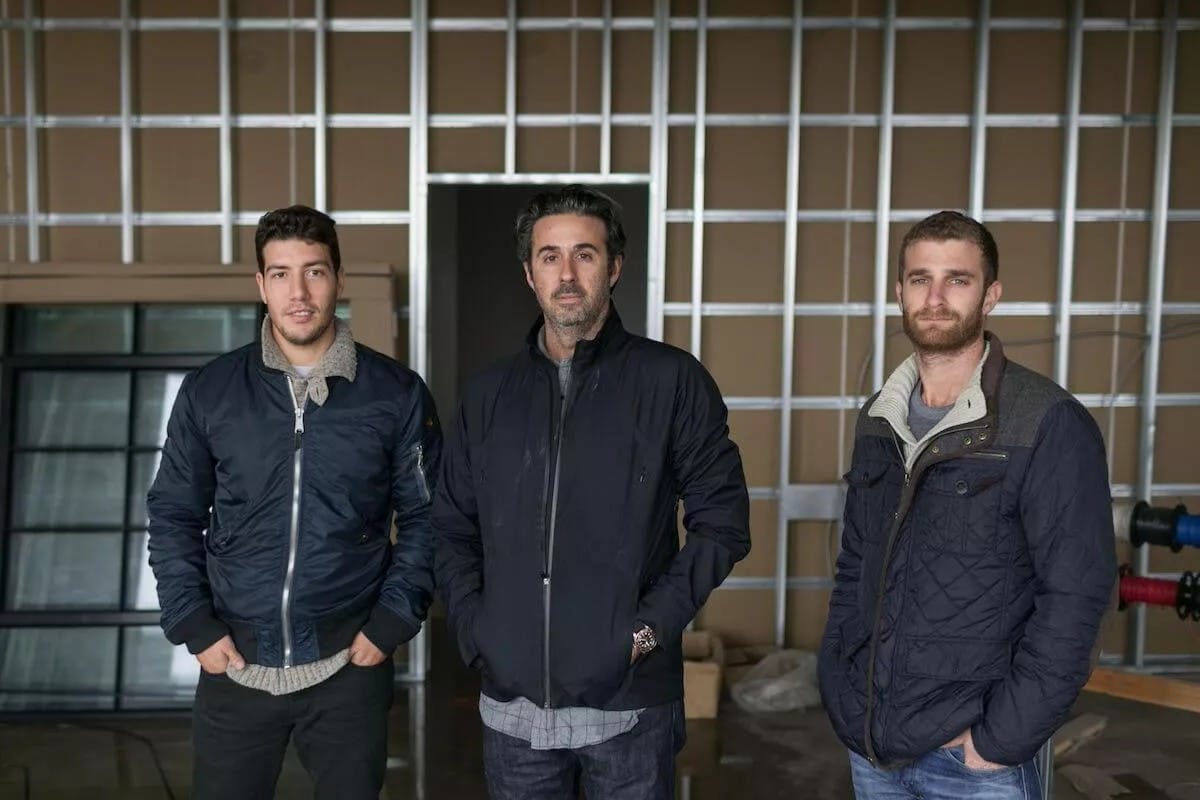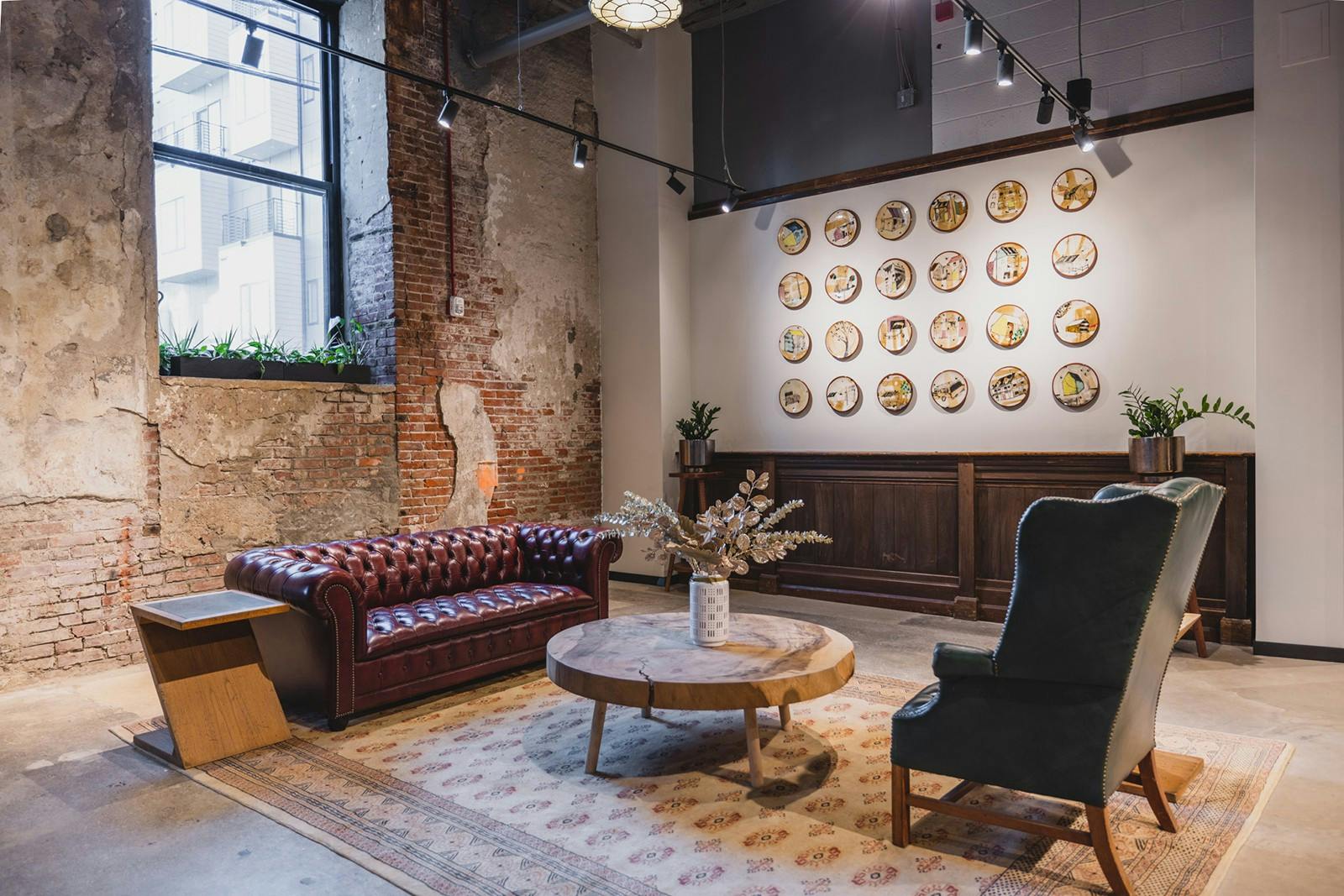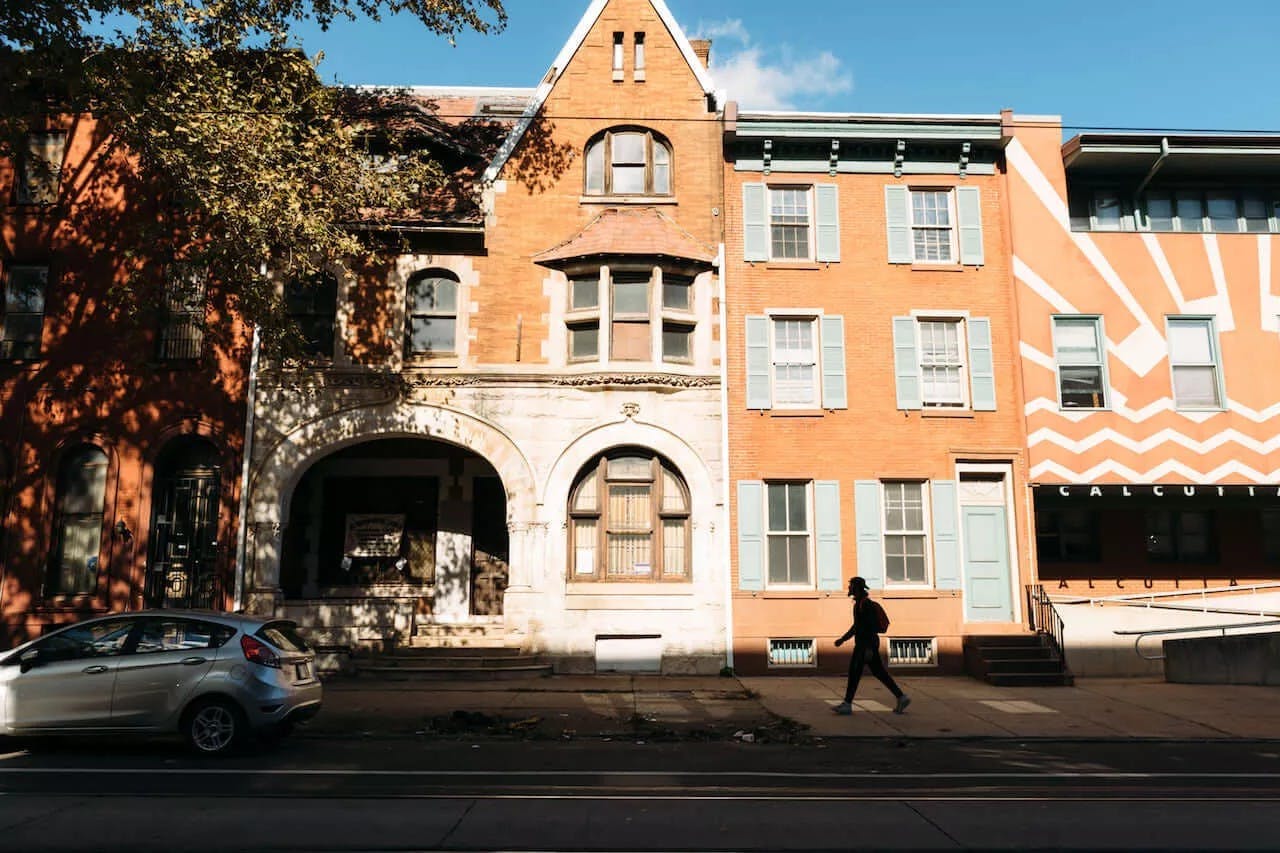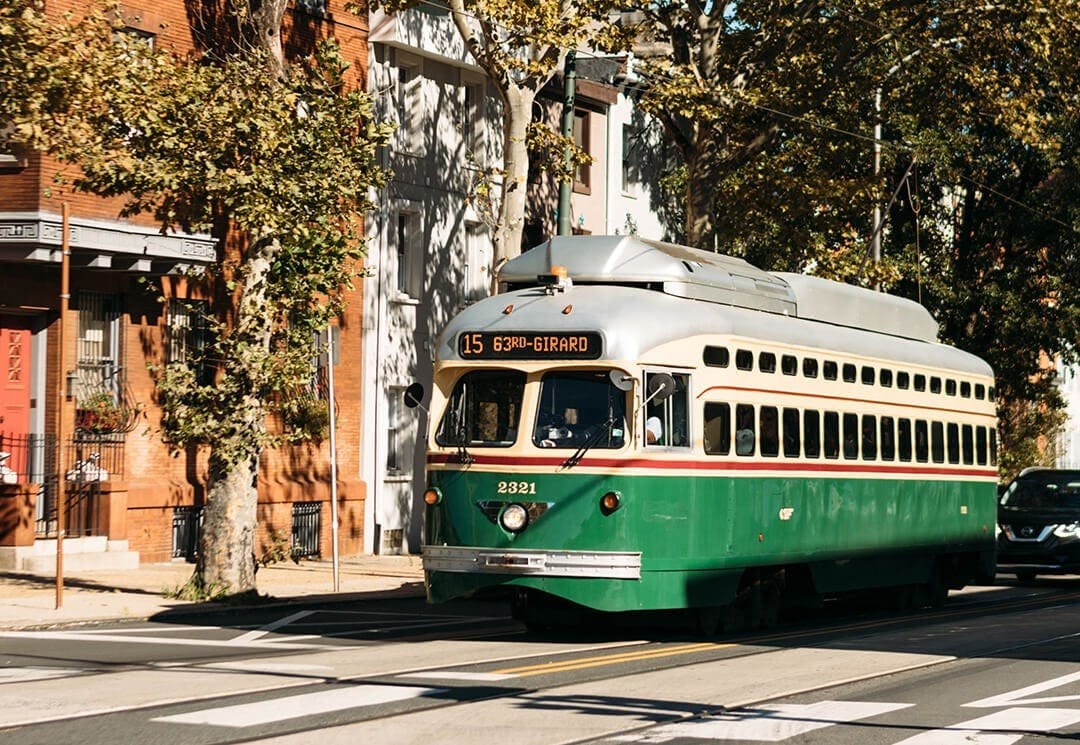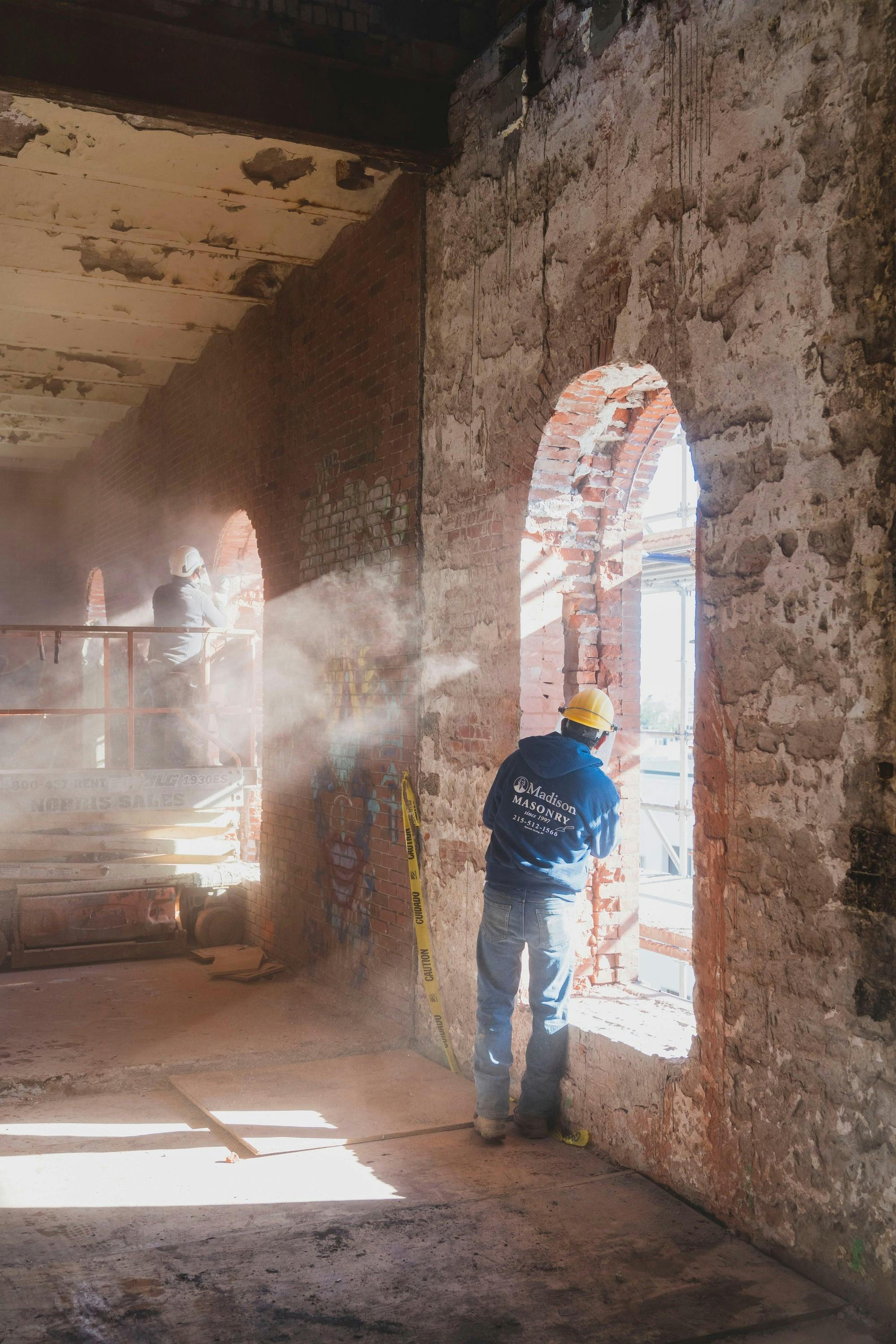TBranding is about helping someone unlock their full potential.
Through our work as Cohere, we’ve developed the skill to pull off a person’s armor, learn about their stories and tap into their superpowers. We’ve launched “Unfiltered”, a series of conversations where we dig into the real stories happening behind-the-scenes, that you might otherwise only hear on a bar stool - interviews from people who are changing the landscape of our history books and shaping our cities in unique ways.
In our first interview, we’re speaking with David Waxman, Co-Founder/Managing Partner of MMPartners, a real estate company that has been ahead of the curve with the transformation of Philadelphia neighborhoods such as Brewerytown. He runs his business with an entrepreneurial spirit, having invested in over $300MM worth of assets, many of them being historic and adaptive reuse.
Having known David for over 10 years, it’s clear he’s been a long-standing member of the development community in Philly. He does it with care, taking pride in investing in emerging neighborhoods and restoring historical landmarks. That’s a reputation worth getting to know.
With the trend of re-urbanization, most cities are seeing record demand for housing in both the central business districts and surrounding neighborhoods. We all know the demographic influences – millennials who want to stay after college and empty nesters moving downtown. This has an obvious impact on multi-family development and new construction. Cohere’s mission is to help cities become better versions of themselves through the power of branding, and if we’re being honest – we think that it’s more important than ever to redevelop existing infrastructure to help maintain the original charm of neighborhoods.
Putting it simply, adaptive reuse requires more creative thinking than new construction. David Waxman is an expert in repurposing older buildings and we want to dive into them. His legacy is something Philly should be very proud of and we want to help more developers learn from his experiences.
Thanks for taking the time to answer some of these questions. We know you are one busy man but you've always been very responsive. How do you make time for everything you do?
With my executive leadership coach, I worked to understand my strengths, weaknesses and what makes me tick. I discovered I thrive on being creative, problem-solving, thinking strategically and coming up with a plan to get from A to Z. One of the many areas where I am weak is getting stuck in the weeds. It just saps the life out of me. Knowing this, I have deliberately aligned myself with great partners and employees who are very capable in areas where I lack strength, so I can focus more on where I can add the most value.
Too many people try and force themselves to be good at things that they aren’t good at and/or they don’t enjoy. I used to have the mindset that I had to work to improve on all the things I sucked at, but now I’m only interested in doing the very few things I’m very good at and letting the people I trust to handle the rest.
In terms of the nuts and bolts of how I actually manage my time, I’ve created a system and stick to it like clockwork. Every year over the holidays I take a two-week family trip. On this trip, I spend a lot of time looking back at the previous year and analyzing the goals I had set. At a high level, I look at what worked and what didn’t work. I map out where I want to go in the next year in macro goals and import the data into a spreadsheet to track everything in one place. Then each week and day I’m using this spreadsheet to plan out my days/weeks/year to hit my goals.
The real key is doing this day in day out, week in week out, year after year. Consistency wins the race.
Those who know you would say that David Waxman’s personal brand is about style, timelessness, and long-lasting reliability. You take the long view and you are consistent. What influenced you to be the person you are today, both in business and personally?
Wow, I’m really flattered by this question/compliment. Business-wise, I’ve been very lucky to have worked for a number of developers before I went out on my own that I learned a great deal from. I also have a voracious appetite for reading and learning.
What I have observed, which certainly isn’t rocket science, is that in real estate if you develop/own good properties in a good location, over time you will be rewarded, especially if your projects stick out from the crowd so you’re not just replicating what’s out there.
The other key mantra is that anything worth doing takes hard work and patience.
The whole idea of getting rich quick is a myth. It takes perseverance and an ability to get kicked in the balls day in and day out, but keep getting back up and moving forward because at some point you will be rewarded.
Attending a Quaker school for K-12th grade taught me to look at things in a very contrarian manner, to question everything and look for creative solutions to big problems. This has served me well in business. I tend to go left when everyone else goes right. Going against the herd and not being afraid to think for yourself creates opportunities in life.
I’ve learned not to be afraid to take a calculated risk because often it’s not a risk at all.
You’ve been developing in north Philly near temple’s campus, Brewerytown and Francisville for over 18 years now. What initially got you started in that area of Philadelphia?
I was born and raised in Center City, and left for college in Boston in 1994. When I left, I was convinced I wouldn’t move back after college, having lived through a time when the city was kind of a shithole. Funny enough, I now miss those days of the really gritty Philly with no traffic, lots of parking spots, cheap real estate and few, if any, d-bags. I moved to Miami after college, then NYC. In the early 2000s when I was ready to start doing my own real estate deals, I knew NYC wasn’t a viable option. I decided to do projects in Philadelphia in an emerging neighborhood, which was what I studied in college and was the aspect of real estate development I found most intriguing.
Fact is, I could have gone to any neighborhood that was redeveloping in Philly at that point and done quite well, probably even better than I did in Brewerytown. However, I wouldn’t have had the same ability to drive change on the scale we did in Brewerytown (Graduate Hospital, Northern Liberties, etc.), which has created much larger opportunities for our company. I was intrigued by Brewerytown for a number of reasons:
Location: Brewerytown is centrally located with great access to highways and public transportation
Retail Corridor: The 4-block condensed and intact retail corridor along W. Girard Avenue
In The Path of Development: Development was bound to move to Brewerytown from Fairmount
Value: In the early 2000s, prices for land/shells in Brewerytown were very attractive relative to other emerging neighborhoods. I had a finite amount of capital saved up to invest, and in Brewerytown, I was able to parlay those funds into 9 shells on the 2900 block of W. Girard.
Scale: I saw the opportunity in Brewerytown to acquire a good deal of property to allow us to really effectuate positive change. This was my first project and served as the template for an organic block-by-block approach to redeveloping Brewerytown.
History and Great People: I was just a visitor, the neighborhood belonged to the people who lived there for decades before I came along, and will still be here long after I am gone.
Brewerytown, like many urban neighborhoods in Philly & other major cities, had suffered from decades of disinvestment due to government policies & other bullshit. There was a real need for capital to get to the neighborhood to develop the area in a responsible manner. I felt I could do that.
Our team helped you brand and lease-up The Civic. How’s it going now? What surprised you most about this project?
So far it’s going great! We are happy with the response to the building and how we have positioned it with your help. Most surprising is the amount of people who have noticed what we have done and love it. It’s easy when you’re in the bubble to think something will work, especially something truly unique like you created for this project, but hearing the feedback it’s clear we nailed it.
New construction is so much cheaper than redeveloping an existing property. Why do you personally choose adaptive reuse over new construction? What does it mean to you to help redevelop landmark buildings in the city you grew up in?
I have built a fair amount of new construction and we still do it where it makes sense, but you are correct, I much prefer adaptive reuse. It does cost more but the end product is way better than new construction, not just aesthetically but also from a quality perspective. These old buildings were usually over-designed so you often have floors that are one to two feet thick, high ceilings and big window openings. Unless you are building to the high end of the market, you can’t replicate this in new construction.
These old buildings also have great stories that can assist in marketing and telling a story. At the end of the day, people prefer an interesting adaptive reuse apartment vs. a generic “spaceship” new building.
You have unique floor plans, not every unit is the same, and you can create a great mix of rough original materials (steel columns, exposed brick, graffiti) with new softer materials to create a cool high/low vibe. From a dollars-and-cents perspective, the ability to utilize historic tax credits allows us to de-risk these transactions and compensate for the increased costs. Historic tax credits are an amazing financial tool if you understand how to effectuate a deal using them. It’s not easy, it’s frankly kind of brutal.
It can be tough to get out of your bubble at times but you seem to be a guy who is creatively inspired. What projects, visionaries or brands are you excited by these days?
I read tons of different magazines across all sorts of genres. Right now I’m really into Gary Vaynerchuk for his marketing perspective, I listen to his podcast every morning on my commute. We are big fans of social media marketing and he’s our guru. I like to travel to other cities and see what’s happening there to get ideas. There are few truly original ideas out there. Interestingly, I really like a lot of the new high-rise construction down in Miami. The branding, amenities, and finishes are really at the forefront of what is happening in real estate worldwide and I tend to get little ideas here and there.
We are concerned about the dystopia of the look of multi-family new construction. It seems like only a few styles of architecture catch on in cities that then become replicated and drown out the character of that town. What advice do you have for other new developers in Philly regarding authenticity?
The fucking “spaceship” buildings are just the worst. On one hand, it helps me because it allows our projects to stand out, but it kills the urban environment – especially when a good historic building is torn down to make way for these things. Philadelphia is a historic row home city where brick is the primary façade material. Brick is a great material, that’s why so many row homes are still standing.
I’m definitely not an advocate of building new to look old, that’s some Disneyland-type of shit, but I am a proponent of less is more. These new buildings and houses with 5 or 6 façade materials just kill me and it’s almost as if everyone is sharing the same plan, little originality. My advice is to keep it simple – straight lines, fewer materials and use more brick!
Be honest...what are the things that keep you up at night?
Aside from my two-year-old son, most nights I sleep really well. On the rare nights where I’m tossing and turning worrying about something, it usually is something really stupid and small that I frankly shouldn’t be concerning myself with because someone on my team is handling it. As it relates to the fact I take calculated risks for a living that should keep me up at night, they just don’t. I am very comfortable taking risks because I don’t just jump into something without a lot of front end diligence. Barring a black swan event in the economy (which I can’t control), I know I will be ok.
I am acutely aware there will be road bumps along the way, so I’m prepared for that “oh shit” moment, but I know if you keep your head on straight, don’t lose your shit and think clearly – you can solve any problem.
Is there anything in your career you wish you could have done differently? What shortcuts can you help others who are less experienced learn from so they won’t have to go through learning lessons you endured?
I tend to not be someone who has regrets or dwells on the past. I think one thing I should have done differently, and this may sound crazy, is that I didn’t buy enough property in Brewerytown. I knew the neighborhood was gonna blow up and I should have owned way more property. Trust your gut.
Make a change when you see a problem right away, don’t put your head in the sand and hope something will change. Just step up and make a change–have difficult conversations.
My last piece of advice is to realize that everything typically costs more and takes longer to get done. Assume the worst in your analysis and be pleasantly surprised when things turn out better.
